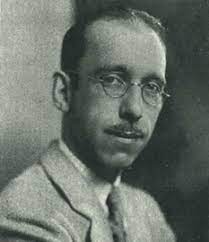Thrasher, Frederic Milton

Bio: (1892-1962) American sociologist. Frederick Thrasher received his Ph.d. from the University of Chicago and taught at the same University, and later moved to the University of New York. He was a member of the Chicago School of Sociology, and his doctoral dissertation, mentored by Robert Park, was published as the book The Gang: A Study of 1,313 Gangs in Chicago (1927). This research is the first thorough study of a gang of minors in a large city. Thrasher used a large number of methods in his research: court statistics, observation, collection of personal data of members of juvenile gangs, as well as interviews. Thrasher observes juvenile gangs through an ecological paradigm developed by the Chicago School of Sociology. Gangs are the product of the structural and environmental consequences of the social disorganization that took place in Chicago. Juvenile gangs have sprung up in isolated and impoverished immigrant neighborhoods of Chicago. Gangs were part of the psychological and group processes among adolescents in these neighborhoods. Thrasher defines a juvenile gang as follows:
"The gang is an interstitial group originally formed spontaneously, and then integrated through conflict. It is characterized by the following types of behavior: meeting face to face, milling, movement through space as a unit, conflict, and planning. The result of this collective behavior is the development of tradition, unreflective internal structure, esprit de corps, solidarity, morale, group awareness, and attachment to a local territory." (Thrasher, 1927).
Jail time and criminal endeavors were a source of pride and prestige in gangs. Apart from criminal activities, members of juvenile gangs spent most of their time playing cards, smoking cigarettes, and harassing neighbors and shop owners. Thrasher was an advocate of social reforms and the practice of juvenile courts, as a solution to the problem of juvenile gangs. Thrasher later made sociological studies of the movies.
Fields of research
City Conflict Crime Ghetto Group Immigration Poverty Prisons Psychology Status Tradition Violence SubcultureTheoretical approaches
Chicago SchoolMain works
The Gang: A Study of 1,313 Gangs in Chicago (1927);
Okay for Sound: How the Screen Found its Voice (1946).

